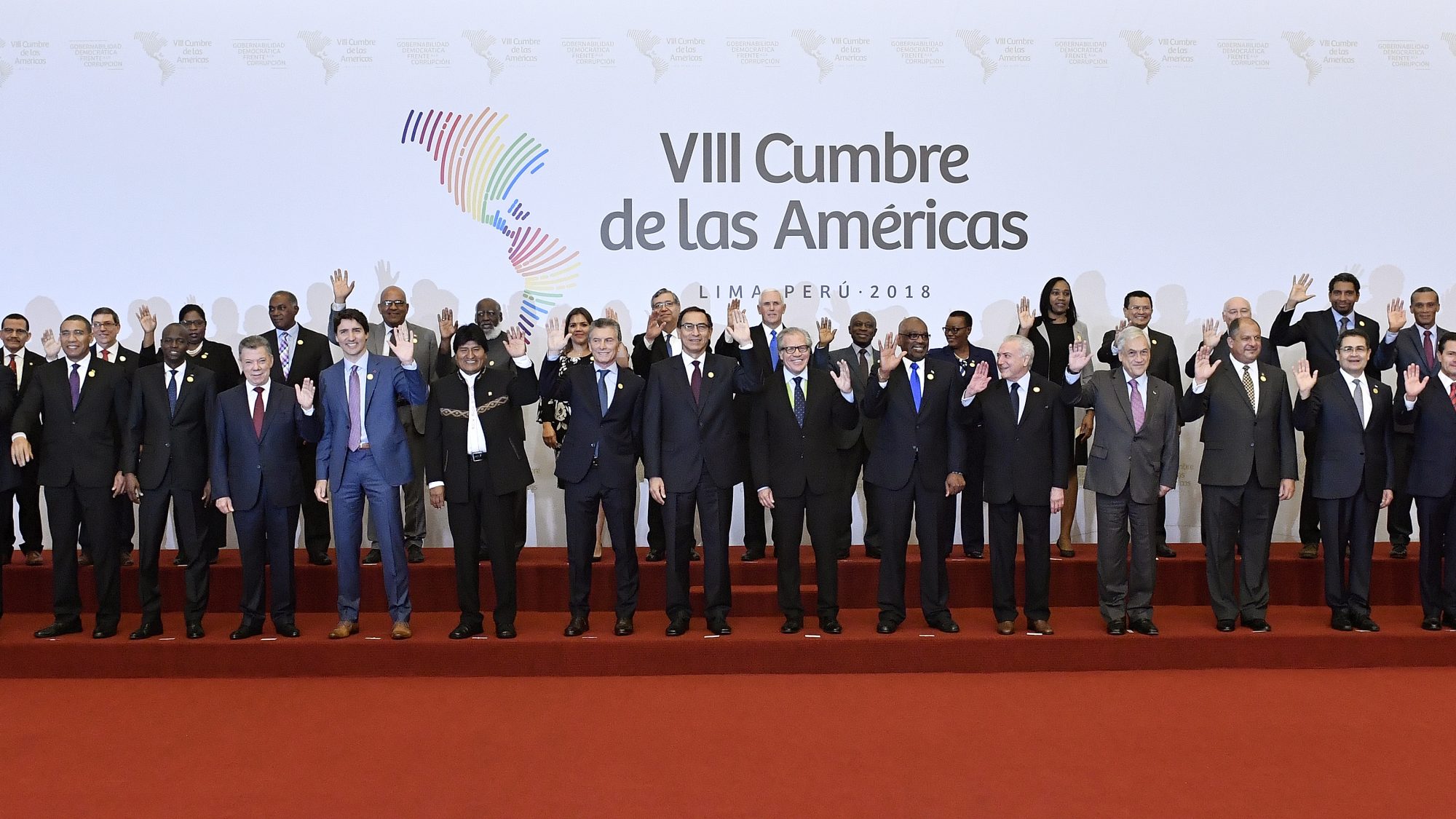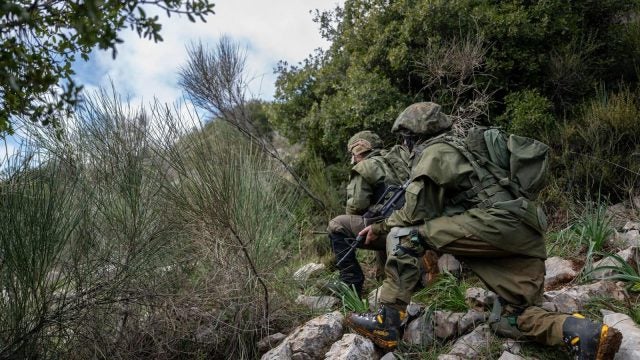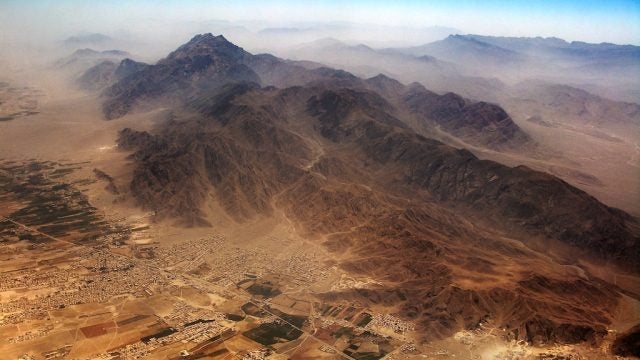
Title: Radical Transparency: The Last Hope for Fighting Corruption in Latin America
Latin America has seen an explosion in corruption during the pandemic, as presidential power expanded and governments sidestepped standard procedures to speed public spending on health and economic emergencies. This year’s Summit of the Americas offers a chance to increase government transparency throughout the hemisphere by giving civil society watchdogs the tools to hold corrupt officials accountable.
Latin America is losing its fight against corruption. The region, never a model of transparency, has seen an explosion in corruption during the pandemic, as presidential power expanded and governments sidestepped standard procedures to speed public spending on health and economic emergencies. Three international anti-corruption offices in Central America were recently disbanded, and the Biden administration has found few partners in the region to revive the U.S. anti-corruption strategy.
This year’s Summit of the Americas, to be held in Los Angeles in June, offers a chance to reverse these worrying trends by increasing government transparency throughout the hemisphere and giving civil society watchdogs the tools to hold corrupt officials accountable.
Recent backsliding in Latin America’s battle against corruption followed a brief period of optimism. A sprawling criminal inquiry in Brazil – begun in 2014 and known as Operation Car Wash – implicated once untouchable political and business elites throughout the region. In 2018, Argentina’s “notebooks” scandal exposed an alleged kickbacks scheme supervised by former Presidents Néstor and Cristina Kirchner.
In Central America, the International Commission against Impunity in Guatemala (CICIG), a UN agency set up in 2007, targeted corrupt police officers and other public officials, including lawmakers, judges, and even a sitting president. Its success inspired copycats, including the Mission to Support the Fight against Corruption and Impunity in Honduras (MACCIH) and the International Commission against Impunity in El Salvador (CICIES), both supported by the Organization of American States (OAS).
All of these campaigns have collapsed. In 2020, President Jair Bolsonaro of Brazil shut down Operation Car Wash amid investigations into his own family. (The campaign had already lost steam as a result of allegations of judicial bias that tainted former federal judge Sergio Moro, the country’s most celebrated anticorruption champion.) The year before, Cristina Kirchner returned to the Casa Rosada presidential palace as vice president, sapping interest among prosecutors and judges in the “notebooks” inquiry.
More recently, leaders in El Salvador, Guatemala, and Honduras dismantled the international anti-corruption platoons after investigators targeted leaders or their allies, although Honduras’s new president says the country should give anti-corruption efforts another try.
The Biden administration had hoped to reanimate the fight against corruption. Last July, it released a detailed strategy for slowing migration from Central America that leans heavily on reducing corruption. Vice President Kamala Harris visited Guatemala City on her first foreign trip, where she said she had “robust” conversations about fighting corruption. The State Department’s Northern Triangle envoy, Ricardo Zúñiga, regards corruption as “one of the most important root causes” of migration.
But the White House has found few allies in Central America for its anti-corruption crusade. Leaders in El Salvador and Guatemala prefer to target crime fighters; in Guatemala, anticorruption campaigners such as former Attorneys General Claudia Paz y Paz and Thelma Aldana, Judge Gloria Porras, and prosecutor Juan Francisco Sandoval have all fled to the United States. In Honduras, Juan Orlando Hernández, who finished his second presidential term in January, is a suspected cocaine trafficker. That has left the United States largely on its own to investigate corruption in Central America, including through a new Justice Department task force.
Backlash against Biden’s anticorruption agenda has not only come from thieving public officials, but also from the region’s private sector and from independent observers who say the issue burns bridges between the United States and Central America. When the President’s top Latin America adviser criticized the region’s “predatory elite,” echoing longstanding concerns among experts, it irritated local businessmen and triggered broader complaints that U.S. anticorruption “name calling and finger-wagging” jeopardizes cooperation on other U.S. priorities in Central America, including reducing inequality and increasing economic development.
These critics say it also makes it harder to tackle other drivers of migration, such as climate change and hunger. Other experts warn that corruption investigations deepen cynicism in the region, sapping support for traditional political parties and opening the door to anti-democratic populists. Still other opponents argue that the U.S. anticorruption strategy creates opportunities for China in great power competition. Finally, anti-anti-corruption campaigners caution that corruption revelations depress investment, including among U.S. firms fearful of penalties under the Foreign Corrupt Practices Act.
The situation, however, is not as hopeless as it appears.
For one, the Biden administration rightly remains focused on fighting corruption. In June, the White House declared the fight against corruption to be a “core U.S. national security interest.” In December, the State Department established a new coordinator on global anti-corruption. In a speech in Ecuador in October, Secretary of State Antony Blinken linked corruption to democratic decay. Fulfilling a new Congressional requirement, the State Department regularly adds corrupt public officials to its notorious “Engel List,” a designation that prohibits travel to the United States. In February, Honduran authorities detained Hernández after U.S. prosecutors sought his extradition.
Many of Latin America’s prosecutors, including in “Potemkin anti-corruption institutions” that have sprouted in Central America, have not jumped on the bandwagon. Fortunately, the White House identified an alternative: civil society, including anticorruption groups and independent news organizations. The United States is “increasing support to media organizations and other watchdogs,” Treasury Secretary Janet Yellen and USAID Administrator Samantha Power wrote. “These brave activists often play the greatest role in bringing down dictatorships.”
This strategy is sensible, especially considering the scarcity of official anticorruption allies. Latin America’s civil society has long demonstrated a capacity to hold public officials accountable for corruption. In 2015, tens of thousands of Guatemalan protestors chased President Otto Pérez Molina out of office amid corruption allegations. The same year, waves of anti-corruption protests in Brazil led to President Dilma Rousseff’s 2016 impeachment.
Perhaps the most compelling display of civil society muscle was in response to revelations in the Panama Papers, Paradise Papers, and Pandora Papers. The Panama Papers, released in 2016, included 11.5 million leaked financial and legal records. The Paradise Papers, released the next year, was an even larger disclosure, a cache of 13.4 million confidential records. In 2021, the International Consortium of Investigative Journalists published an additional 11.9 million leaked documents. Taken together, the leaks revealed the extensive offshore holdings of public figures worldwide and the tactics they employ to avoid tax liabilities. In Latin America, the reverberations were immediate and dramatic. In Chile, for example, lawmakers last year impeached then-President Sebastián Piñera after revelations that his family had sold a mining company in a deal that depended upon a key regulatory decision. He was, however, then acquitted by the senate.
For civil society to play this role reliably, however, it needs more than sporadic leaks. Rather, independent journalists and other watchdogs require robust, enforceable, convenient, and inexpensive access to public information. Many governments in the region have long given lip service to public records access. Unfortunately, the region has a mixed record on passing and implementing public records laws, known as sunshine legislation, and on the use of digitization and cloud computing to open a window onto government decision making. Only two-thirds of countries have approved legislation on access to public information, and of those, only ten included an enforcement mechanism. Enforcement authorities are rarely independent.
The solution is to adopt common, high standards for access to public records, incorporating global best practices such as recommendations from the Open Government Partnership and in model legislation from the OAS. This year’s Summit of the Americas, a triennial heads-of-state gathering that the United States will host in California, is an ideal forum for approving an OAS charter on transparency.
Much of the preparatory work is already complete. The last Summit of the Americas, in Peru in 2018, produced broad commitments to fight corruption, including by improving access to public information. In the summit communiqué, leaders identified the fight against corruption as “fundamental to strengthening democracy and the rule of law.” Their joint statement recognized a need to promote “public awareness and citizen participation” in the fight against corruption, and highlighted tools such as transparency in budgeting, procurement, and contracting. Governments pledged to establish strong institutions to guarantee access to public records.
Latin American governments have long acknowledged that stamping out corruption must involve civil society, a concept enshrined in the 1996 Inter-American Convention against Corruption. The United Nations Convention against Corruption – adopted in 2003 and ratified by nearly all countries in the region – includes an article on the “participation of society” and the importance of assuring “the public has effective access to information.” In 2011, Latin American governments paraded into the Open Government Partnership, which requires laws enabling fair access to information, a commitment “at the heart of open government.” The Inter-American Court of Human Rights has also weighed in. In 2006, in Claude Reyes v. Chile, it ruled that Chile had violated its obligations to provide public access to government records in a case involving an environmental group fighting a forestry project.
Even so, the region’s public records laws are of decidedly mixed quality, and enforcement is spotty. That has been particularly true during the pandemic, as countries such as El Salvador have suspended public records laws.
The best solution would be an OAS charter that sets a minimum standard for transparency, and a follow-up mechanism that assures its implementation. As always, the main challenge would be designing a structure independent from governments. Fortunately, there is a successful model: the inter-American human rights system. All other OAS mechanisms rely either upon politicized and rarely effective peer review or an independent body that lacks sufficient strength. To improve transparency, the OAS should replicate the original design of its special rapporteur for freedom of expression by creating a special rapporteur on corruption.
To assure independence, the special rapporteur would be selected by the independent Inter-American Commission on Human Rights, but would operate autonomously. Using authority from a transparency charter and existing human rights agreements, the special rapporteur would monitor compliance with high standards of public records access and report on the top performers and laggards. At the Summit of the Americas, OAS members should petition the Inter-American Development Bank to amend its rules to incorporate in lending decisions the reports from the new special rapporteur.
This special rapporteur would also consider direct appeals from citizens, and enjoy a sufficient budget, including for awarding grants and offering technical assistance.
The United States, for all its democratic struggles of late, is well-positioned to lead this effort. Congress passed the Freedom of Information Act (FOIA) in 1966, and for decades, courts have defended the public’s right to U.S. government records. In 1978, U.S. Supreme Court Justice Thurgood Marshall, in NLRB v. Robbins Tire & Rubber Co., declared, “the basic purpose of FOIA is to ensure an informed citizenry, vital to the functioning of a democratic society, needed to check against corruption and to hold the governors accountable to the governed.”
As an OAS charter rather than a treaty, Senate approval would not be required for the United States to participate. Moreover, should the obligations mirror the FOIA, State Department lawyers should be at ease. Elsewhere in Foggy Bottom, a transparency pact would be a welcome tool to strengthen governance and increase scrutiny of Chinese engagement in Latin America.
Ultimately, the region needs honest presidents, lawmakers, prosecutors, and judges willing to submit to the rule of law. But for now, an experiment in radical transparency would leave Latin Americans better equipped to hold their leaders accountable.
. . .
Benjamin N. Gedan, PhD, is the deputy director of the Latin American Program at the Woodrow Wilson International Center for Scholars, an adjunct lecturer at the Johns Hopkins University School of Advanced International Studies, and a former South America director on the National Security Council staff in the White House during the Obama administration.
Santiago A. Canton is the Director of the Peter D. Bell Rule of Law Program at the Inter-American Dialogue. From 2001 to 2012 Mr. Canton was the Executive Secretary of the Inter-American Commission on Human Rights. In 1998, in response to a mandate from the Summit of the Americas, he was elected the first Special Rapporteur for Freedom of Expression of the Organization of American States.
Image Credit: Wikimedia Commons; Creative Commons Attribution-Share Alike 2.0 Generic; Originally posted to Flickr by Cancillería del Perú
Recommended Articles

Hezbollah is widely known as the world’s most powerful sub-state actor. However, it suffered a serious military defeat at the hands of Israel in the latest conflict. This article explores…

Despite ten years of concerted efforts, Western-led counterterrorism strategies have failed to restrain jihadist groups in West Africa. Instead, they have inadvertently worsened the situation. As jihadists target other Western…

Balochistan, Pakistan’s largest and westernmost province, spans 44 percent of its landmass yet remains its most sparsely populated and politically marginalized region, home to just 14.8 million of…